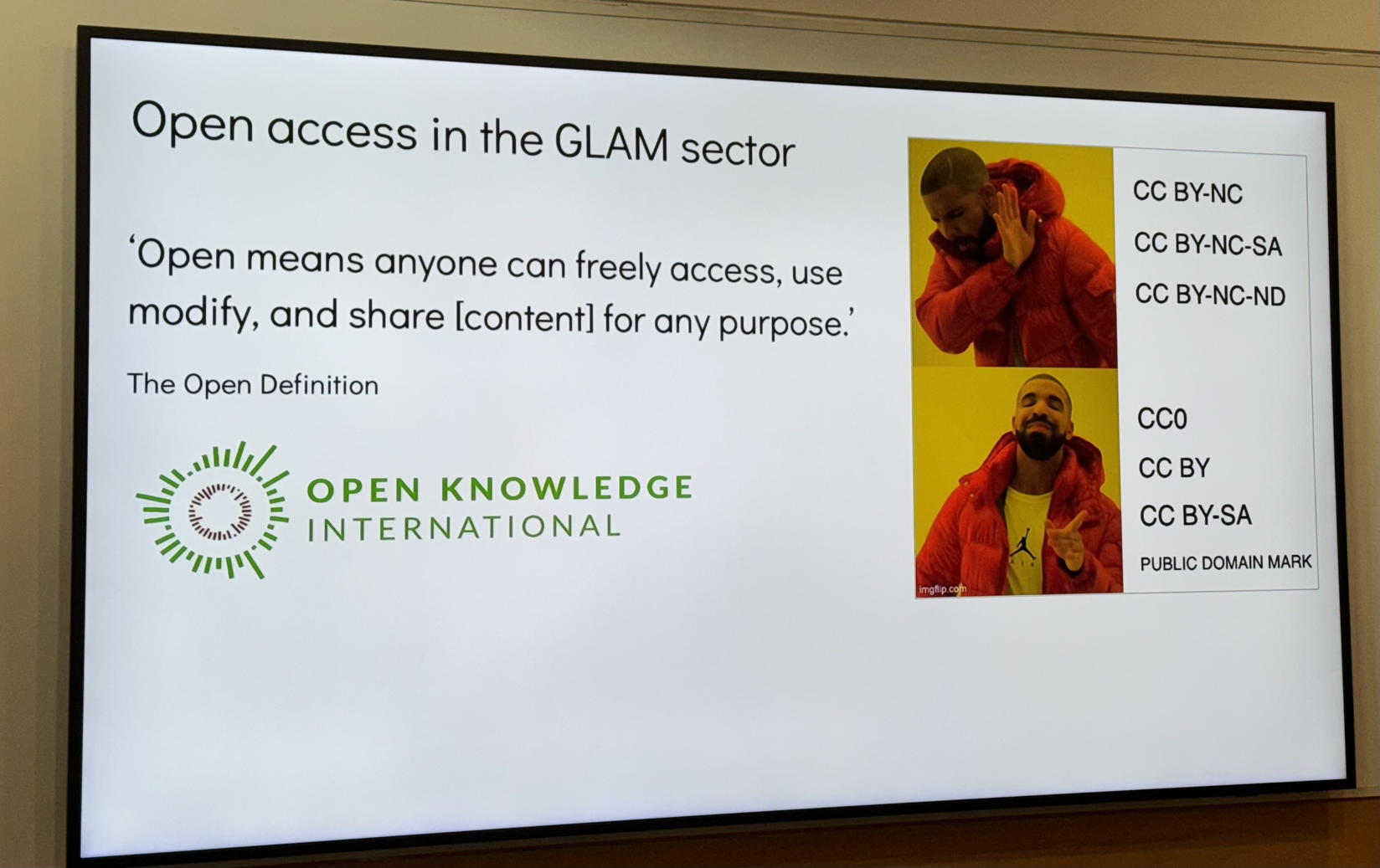Open and Engaged Conference 2023
I attended the British Library's annual Open and Engaged conference on 2023-10-30, held in their conference centre in St Pancras, London. At the time, the British Library had just discovered that they had been subjected to a cyber attack (this is ongoing at the time of writing). Despite the ensuing disruption, with BL staff being unable to access their email or documents, and with the BL's internet access being offline, the staff there managed the remarkable feat of hosting the event with little evidence of the chaos in the background. I found the day interesting, and made the following notes from the various speakers' presentations.
Keynote from Monica Westin
Monica (Internet Archive) gave an entertaining talk on new ownership models for cultural heritage institutions. From this I learned about two interesting initiatives:
Internet Archive Scholar
This was conceived as an archiving solution, but then evolved to become a search service.
This fulltext search index includes over 25 million research articles and other scholarly documents preserved in the Internet Archive. The collection spans from digitized copies of eighteenth century journals through the latest Open Access conference proceedings and pre-prints crawled from the World Wide Web. https://scholar.archive.org
OJS - Beacon
This is a function in the open-source OJS platform to report usage statistics back to a central collection, to aid in ongoing product design and marketing.
GLOBAL USAGE OF OJS More than 8 million items have been published with Open Journal Systems, our open-source publishing software trusted by more than a million scholars in almost every country on the planet. Global Usage of OJS - Public Knowledge Project
Mia Ridge, Living with Machines
Mia (British Library) described the Living with Machines project.
Living with Machines is both a research project, and a bold proposal for a new research paradigm. In this ground-breaking partnership between The Alan Turing Institute, the British Library, and the Universities of Cambridge, East Anglia, Exeter, and London (QMUL, King’s College), historians, data scientists, geographers, computational linguists, and curators have been brought together to examine the human impact of industrial revolution. https://livingwithmachines.ac.uk/about/
Douglas McCarthy, This is not IP I'm familiar with
Douglas (Delft University of Technology) talked about "the strange afterlife and untapped potential of public domain content in GLAM institutions". This was an excellent talk on different perceptions of copyright in the GLAM sector. There was a startling contrast between UK and non-UK institutions in their respective treatment of Digital surrogates of The Rake’s Progress, with UK institutions largely avoiding using public Domain licensing and claiming copyright instead. True to his topic, Douglas has made his slides available here and they are well worth viewing. I particularly liked his use of the "Drake meme" and have been using this in my own work - mostly recently presenting to a workshop in Nigeria.

Emma Karoune, The Turing Way
Emma (The Alan Turing Institute) spoke about Community-led Resources for Open Research and Data Science. Her team has assembled a rich set of resources to support data-science communities.
The Turing Way project is open source, open collaboration, and community-driven. We involve and support a diverse community of contributors to make data science accessible, comprehensible and effective for everyone. Our goal is to provide all the information that researchers and data scientists in academia, industry and the public sector need to ensure that the projects they work on are easy to reproduce and reuse. Welcome — The Turing Way
I have made a note to examine more closely the Community Handbook they have produced - not only for its content, but also for the way in which they have produced it.
Iryna Kuchma, Collective action for driving open science agenda in Africa and Europe
Iryna (EIFL) spoke remotely on this LIBSENSE initiative.
EIFL, WACREN and AJOL will collaborate on a new three-year project to support no-fee open access (OA) publishing in Africa (diamond OA) that launches in November 2023 to empower African diamond OA community of practice and offer cost-efficient, open, public, shared publishing infrastructures. https://libsense.ren.africa/wp-content/uploads/2023/08/LIBSENSE-Collaboration-for-sustainable-open-access-publishing-in-Africa.pptx.pdf
I was interested in this because I have been doing some work with LIBSENSE and am developing an awareness of open-science in Africa more generally.